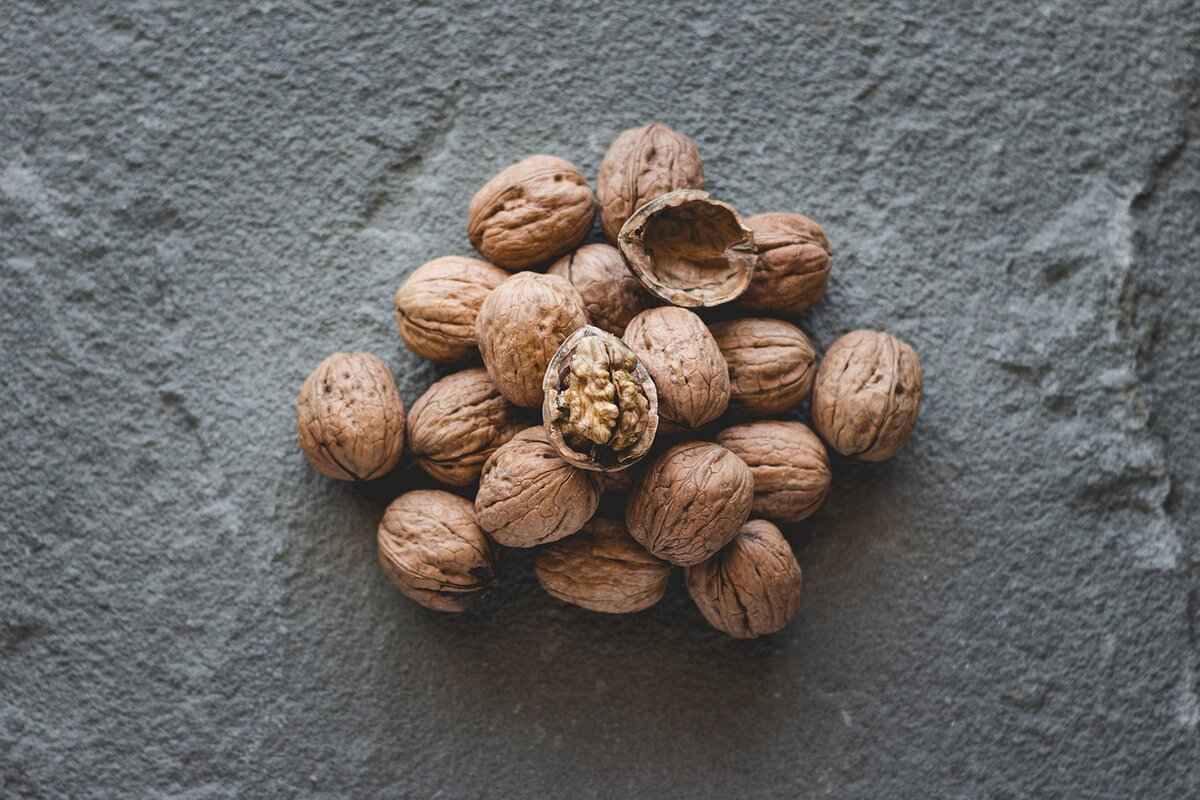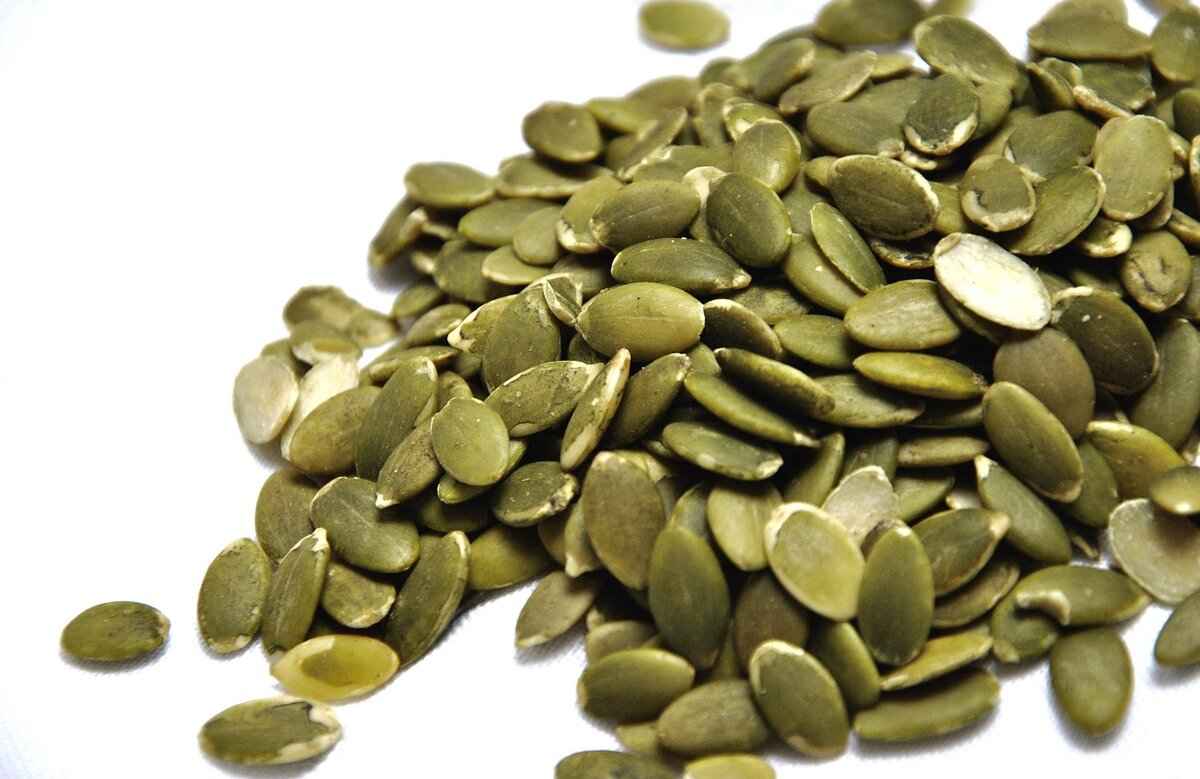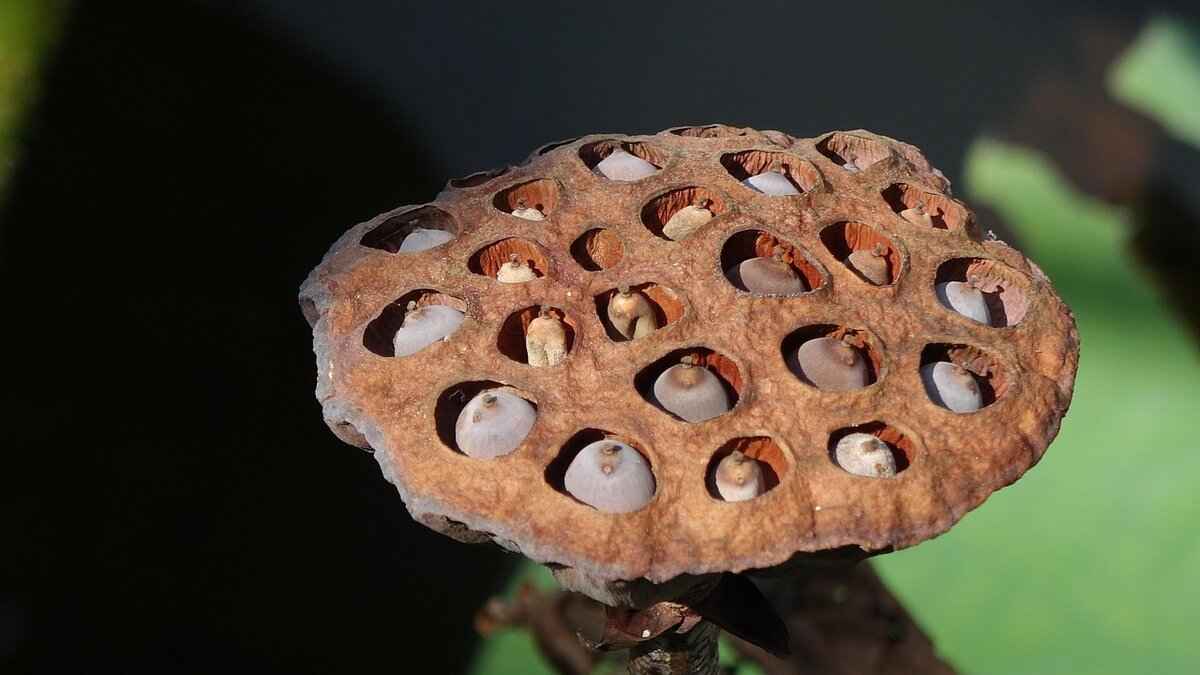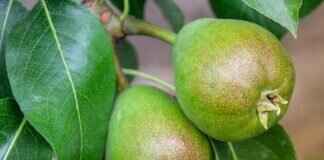Chia seeds have gained popularity in recent years as a superfood, but many pregnant women wonder if they are safe to consume. This article delves into the health benefits of chia seeds for expecting mothers, addressing common concerns and providing evidence-based insights to help make informed dietary choices.
Chia seeds are tiny, black or white seeds derived from the Salvia hispanica plant. They are packed with essential nutrients, including:
- Omega-3 fatty acids
- Fiber
- Protein
- Calcium
- Iron
- Antioxidants
These nutrients make chia seeds a valuable addition to the diet of pregnant women, contributing to both maternal and fetal health.
Understanding the safety of chia seeds during pregnancy is crucial. Research indicates that they are safe for most pregnant women when consumed in moderation. However, it is essential to consider individual health conditions. Pregnant women should consult their healthcare provider before adding chia seeds to their diet, especially if they have any underlying health issues.
Chia seeds offer numerous health benefits, including:
- Improved Digestion: The high fiber content in chia seeds aids in digestion and can help alleviate common pregnancy-related issues such as constipation.
- Enhanced Energy Levels: Chia seeds provide a sustained source of energy, which can be particularly beneficial during pregnancy when energy levels may fluctuate.
- Vital Nutrient Support: They are rich in nutrients that support both the mother’s health and the baby’s development.
Omega-3 fatty acids found in chia seeds are essential for fetal brain development. These fatty acids contribute to the development of the nervous system, making them an important dietary component for expecting mothers. Including omega-3s in the diet can also help reduce inflammation and promote overall health.
Incorporating chia seeds into a pregnancy diet can be simple and delicious. Here are some practical ways to add them to meals and snacks:
- Chia Seed Pudding: Mix chia seeds with milk or a dairy alternative and let them sit overnight. Customize with fruits, nuts, or honey for added flavor.
- Adding to Smoothies: Blend chia seeds into your favorite smoothie for a nutrient boost while maintaining a tasty and refreshing drink.
- Sprinkling on Salads: Add chia seeds to salads for an extra crunch and nutritional benefit.
While chia seeds are generally safe, some potential risks and side effects may arise, particularly if consumed in excessive amounts or without proper hydration. Chia seeds can absorb a significant amount of water, which can lead to digestive discomfort if not consumed with adequate fluids. It is advisable to start with small amounts and gradually increase intake.
Before making significant dietary changes, it’s essential for pregnant women to consult with healthcare providers to ensure that chia seeds align with their individual health needs and pregnancy goals. This step can help prevent any potential complications and ensure a healthy pregnancy.

What Are Chia Seeds and Their Nutritional Profile?
Chia seeds, often hailed as a superfood, are tiny, black or white seeds from the plant Salvia hispanica, native to Mexico and Guatemala. These seeds have gained popularity for their impressive nutritional profile, making them an excellent addition to a pregnant woman’s diet. Rich in essential vitamins, minerals, and omega-3 fatty acids, chia seeds provide numerous health benefits that can support both the mother and the developing fetus.
One of the most remarkable aspects of chia seeds is their nutrient density. Just a two-tablespoon serving contains:
| Nutrient | Amount |
|---|---|
| Calories | 138 |
| Protein | 4.7g |
| Fat | 8.6g |
| Carbohydrates | 12g |
| Fiber | 10g |
| Calcium | 18% of the Daily Value (DV) |
| Iron | 12% of the DV |
These tiny seeds are particularly notable for their high content of omega-3 fatty acids, which are crucial for fetal brain development. Omega-3s play a vital role in the formation of the nervous system and can potentially enhance cognitive functions in the child. Furthermore, chia seeds are an excellent source of fiber, which can aid in digestion and help alleviate common pregnancy-related issues such as constipation.
In addition to omega-3s and fiber, chia seeds are packed with antioxidants, which help combat oxidative stress during pregnancy. They also contain essential minerals like calcium, magnesium, and phosphorus, all of which contribute to the overall health of both the mother and the baby.
Moreover, chia seeds are versatile and can be easily incorporated into various meals. Whether sprinkled on yogurt, blended into smoothies, or used in baking, they add a nutritional boost without altering the taste significantly. This adaptability makes them a practical choice for expecting mothers looking to enhance their diet with nutrient-rich foods.
However, it’s important to consume chia seeds in moderation. Although they are generally safe for most pregnant women, excessive intake can lead to gastrointestinal discomfort. It is advisable to drink plenty of water when consuming chia seeds to prevent any digestive issues.
In summary, chia seeds are a nutritional powerhouse that can offer numerous benefits during pregnancy. Their rich profile of omega-3 fatty acids, fiber, and essential nutrients makes them a valuable addition to a healthy diet. Expecting mothers should consider incorporating chia seeds into their meals, always keeping in mind the importance of moderation and hydration.

Are Chia Seeds Safe to Consume During Pregnancy?
When it comes to pregnancy, nutrition plays a vital role in the health of both the mother and the developing baby. Among the many superfoods available, chia seeds have gained popularity due to their impressive nutritional profile. However, a common concern for expecting mothers is whether these tiny seeds are safe to consume during pregnancy. This article aims to address that question, providing evidence-based insights to help you make informed dietary choices.
Understanding the safety of chia seeds during pregnancy is crucial. Research indicates that they are safe for most pregnant women when consumed in moderation. Chia seeds are rich in omega-3 fatty acids, fiber, and essential vitamins and minerals, making them a beneficial addition to a pregnant woman’s diet.
Some studies suggest that chia seeds can help in managing pregnancy-related issues such as constipation and fatigue. However, it is important to note that moderation is key. Consuming excessive amounts of chia seeds can lead to digestive discomfort due to their high fiber content.
- High in Omega-3 Fatty Acids: Essential for fetal brain development.
- Rich in Fiber: Aids digestion and can help prevent constipation.
- Source of Protein: Supports overall health and energy levels.
- Contains Antioxidants: Helps protect cells from damage.
Chia seeds provide numerous health benefits that can be particularly advantageous during pregnancy. Their omega-3 fatty acids are crucial for fetal brain development, while the high fiber content aids in digestion, helping to alleviate common pregnancy-related issues such as constipation. Additionally, chia seeds are a good source of protein, which is essential for the growth and development of the baby.
While chia seeds are generally safe for consumption, there are some potential risks to consider. Pregnant women should be cautious about the quantity consumed. Overeating chia seeds without adequate hydration can lead to gastrointestinal issues, such as bloating or discomfort. It is advisable to soak chia seeds in water or another liquid before consumption, as this allows them to expand and become easier to digest.
Incorporating chia seeds into your diet can be both simple and delicious. Here are some practical ways to add them to your meals:
- Chia Seed Pudding: Mix chia seeds with your choice of milk and let them sit overnight for a nutritious breakfast.
- Smoothies: Add a tablespoon of chia seeds to your favorite smoothie for an energy boost.
- Baking: Incorporate chia seeds into muffins or bread for added nutrition.
Always consult with your healthcare provider before making significant dietary changes during pregnancy. They can provide personalized advice based on your individual health needs and pregnancy goals.
In summary, chia seeds can be a safe and nutritious addition to a pregnant woman’s diet when consumed in moderation. Their numerous health benefits, combined with proper preparation, can help support a healthy pregnancy.
Health Benefits of Chia Seeds for Pregnant Women
Chia seeds, often hailed as a superfood, are packed with nutrients that can significantly benefit pregnant women. Their rich composition makes them an excellent addition to a balanced diet during pregnancy. This article delves into the various health benefits of chia seeds for expecting mothers, shedding light on how they can support both maternal and fetal health.
Chia seeds are small but mighty, containing an impressive array of essential nutrients. They are rich in:
- Omega-3 fatty acids: Critical for fetal brain development.
- Fiber: Supports digestive health and can help prevent constipation.
- Protein: Essential for the growth and repair of tissues.
- Vitamins and minerals: Including calcium, magnesium, and iron, vital for both mother and baby.
One of the most notable benefits of chia seeds is their high fiber content. Pregnant women often experience digestive issues such as constipation. The soluble fiber in chia seeds absorbs water, forming a gel-like substance that aids in smooth digestion. This can help alleviate discomfort and promote regular bowel movements, making chia seeds a valuable ally during pregnancy.
Many women report feeling fatigued during pregnancy. Chia seeds can help combat this fatigue due to their nutrient profile. The combination of protein, healthy fats, and fiber provides a sustained energy release, helping to keep energy levels stable throughout the day. This makes them an excellent snack option for pregnant women needing a quick energy boost.
The omega-3 fatty acids found in chia seeds are crucial for fetal development, particularly for brain and eye health. Research suggests that adequate intake of omega-3s during pregnancy can lead to improved cognitive function and better visual development in infants. Thus, incorporating chia seeds into the diet can be a simple way to enhance these essential nutrients for the growing baby.
Chia seeds are not only nutritious on their own but can also enhance the absorption of other nutrients. The gel-like consistency they form when soaked in liquid can help slow down digestion, allowing for better absorption of vitamins and minerals from other foods consumed in the same meal. This is particularly beneficial during pregnancy when nutrient requirements are heightened.
While chia seeds are generally safe for most pregnant women, moderation is key. Overconsumption can lead to digestive discomfort, including bloating or gas. It is essential to stay hydrated when consuming chia seeds, as they expand in water and can absorb a significant amount of liquid. Pregnant women should consult with their healthcare provider before making significant dietary changes.
Incorporating chia seeds into your daily diet can be both simple and enjoyable. Here are some practical suggestions:
- Add chia seeds to smoothies for a nutrient boost.
- Mix them into yogurt or oatmeal for added texture and nutrition.
- Prepare chia seed pudding by soaking them in almond milk or coconut milk overnight.
- Sprinkle chia seeds on salads or stir them into soups for extra crunch.
In conclusion, chia seeds offer numerous health benefits for pregnant women, from improved digestion to enhanced energy levels and vital nutrient support. By understanding their advantages and incorporating them wisely into the diet, expecting mothers can take proactive steps toward a healthier pregnancy.
Omega-3 Fatty Acids and Fetal Development
During pregnancy, the nutritional choices made by expecting mothers can significantly impact both their health and the development of their baby. One of the standout components in a healthy pregnancy diet is omega-3 fatty acids, particularly those found in chia seeds. These tiny seeds are not only rich in essential nutrients but also play a critical role in fetal brain development.
Omega-3 fatty acids are a type of polyunsaturated fat that is vital for numerous bodily functions. They are particularly important during pregnancy as they contribute to the development of the fetal brain and nervous system. Research indicates that adequate intake of omega-3s can lead to improved cognitive function and visual development in infants.
Chia seeds are one of the richest plant-based sources of omega-3 fatty acids, specifically alpha-linolenic acid (ALA). Just two tablespoons of chia seeds can provide about 5,000 milligrams of ALA, making them an excellent addition to the diet of expecting mothers. Incorporating these seeds into daily meals can help ensure that both mother and baby receive the necessary nutrients for optimal health.
- High in Fiber: Chia seeds are packed with fiber, which can help alleviate constipation, a common issue during pregnancy.
- Rich in Antioxidants: They contain antioxidants that help combat oxidative stress, protecting both mother and baby.
- Good Source of Protein: Chia seeds provide a plant-based protein source, which is essential for the growth and development of the fetus.
Incorporating chia seeds into a pregnancy diet can be easy and enjoyable. Here are some practical suggestions:
- Add to Smoothies: Blend chia seeds into smoothies for a nutrient boost.
- Make Chia Pudding: Soak chia seeds in milk or a milk alternative overnight to create a delicious pudding.
- Sprinkle on Salads: Add chia seeds to salads for an extra crunch and nutritional boost.
While chia seeds are generally safe for most pregnant women, moderation is key. Consuming excessive amounts without adequate hydration may lead to digestive issues. It is advisable to drink plenty of water when consuming chia seeds to prevent any potential discomfort.
Before making any significant dietary changes, it is essential for expecting mothers to consult with healthcare providers. This ensures that chia seeds and other dietary components align with their individual health needs and pregnancy goals. Healthcare professionals can provide tailored advice on the appropriate amounts and methods of incorporating chia seeds into the diet.
In conclusion, the inclusion of chia seeds in the diet of expecting mothers can provide numerous health benefits, particularly due to their high omega-3 fatty acid content. These seeds are not only safe when consumed in moderation but also offer a variety of nutrients that support both maternal health and fetal development. By making informed dietary choices, expecting mothers can contribute to the healthy growth and development of their babies.
Fiber Content and Digestive Health
During pregnancy, many women experience various digestive issues, with constipation being one of the most common complaints. This can be attributed to hormonal changes, reduced physical activity, and dietary modifications. One effective way to combat this discomfort is by incorporating chia seeds into your diet. These tiny seeds are not only nutrient-dense but also rich in fiber, which plays a crucial role in maintaining digestive health.
Chia seeds contain an impressive amount of dietary fiber—approximately 10 grams of fiber per ounce (28 grams). This high fiber content contributes to improved digestion in several ways:
- Increased Stool Bulk: The soluble fiber in chia seeds absorbs water and expands in the digestive tract, forming a gel-like substance. This helps to increase the bulk of stool, promoting regular bowel movements.
- Enhanced Gut Health: Fiber acts as a prebiotic, nourishing the beneficial bacteria in the gut. A healthy gut microbiome is essential for effective digestion and nutrient absorption, which is particularly important during pregnancy.
- Slowed Digestion: The gel-like consistency of chia seeds slows down the digestion process, which can help maintain steady blood sugar levels and prevent sudden spikes that can lead to discomfort.
In addition to alleviating constipation, the fiber in chia seeds can help manage other digestive issues that may arise during pregnancy, such as bloating and gas. By incorporating chia seeds into your meals, you can create a more balanced diet that supports overall digestive health.
Here are some practical ways to add chia seeds to your daily routine:
- Chia Seed Pudding: Combine chia seeds with your choice of milk or yogurt, add sweeteners and fruits, and let it sit overnight for a delicious breakfast.
- Smoothies: Blend chia seeds into your favorite smoothies for an added fiber boost.
- Sprinkling on Salads: Add a tablespoon of chia seeds to salads or grain bowls for extra texture and nutrition.
While chia seeds are generally safe and beneficial, it is important to consume them with adequate hydration. Because they absorb a significant amount of water, not drinking enough fluids can lead to digestive discomfort. Always pair chia seeds with plenty of water to maximize their benefits.
In summary, the high fiber content in chia seeds can significantly aid in digestion, making them a valuable addition to a pregnant woman’s diet. By promoting regular bowel movements and enhancing gut health, chia seeds offer a natural solution to common pregnancy-related digestive issues. As always, it is advisable to consult with a healthcare provider before making any significant dietary changes during pregnancy to ensure it aligns with your individual health needs.
Potential Risks and Side Effects of Chia Seeds
Chia seeds have gained popularity as a superfood, especially among pregnant women due to their numerous health benefits. However, while they are generally safe, it is essential to understand the potential risks and side effects associated with their consumption, particularly when not consumed properly.
Chia seeds are rich in nutrients, but excessive consumption can lead to some adverse effects. One of the primary concerns is their high fiber content, which, while beneficial for digestion, can cause gastrointestinal discomfort if consumed in large quantities. Pregnant women, who may already experience digestive issues, should be cautious about their intake.
Another critical aspect to consider is hydration. Chia seeds can absorb up to 12 times their weight in water, forming a gel-like substance. If these seeds are consumed without adequate fluid intake, they can lead to esophageal obstruction or other digestive problems. It is crucial for expecting mothers to drink plenty of water when incorporating chia seeds into their diet.
Although rare, some individuals may experience allergic reactions to chia seeds. Symptoms can range from mild skin irritations to more severe reactions, such as difficulty breathing. Pregnant women with a history of food allergies should consult their healthcare provider before adding chia seeds to their diet.
Chia seeds may also interact with certain medications, particularly those that affect blood sugar levels or blood pressure. The seeds can enhance the effects of these medications, leading to hypoglycemia or hypotension. Pregnant women should discuss their dietary choices with their healthcare provider to ensure safety.
To enjoy the health benefits of chia seeds while minimizing risks, moderation is key. Here are some practical tips:
- Start with a small amount, such as one tablespoon per day, and gradually increase as your body adjusts.
- Always soak chia seeds in water or another liquid before consumption to prevent digestive issues.
- Ensure adequate hydration throughout the day to help the seeds expand properly in the stomach.
- Consult with a healthcare professional for personalized advice, especially if you have pre-existing health conditions.
In summary, while chia seeds can be a nutritious addition to a pregnant woman’s diet, understanding the potential risks and side effects is essential. By consuming them in moderation and ensuring proper hydration, expecting mothers can safely enjoy the benefits of this superfood.

How to Incorporate Chia Seeds into Your Diet
Incorporating chia seeds into your diet during pregnancy can be both simple and delicious. These tiny seeds are not only nutritious but also versatile, making them easy to add to various meals and snacks. Here are some practical and enjoyable ways to include chia seeds in your daily routine:
- Chia Seed Pudding: One of the most popular ways to enjoy chia seeds is by making chia seed pudding. To prepare this, combine 3 tablespoons of chia seeds with 1 cup of your choice of milk (dairy, almond, coconut, etc.) in a bowl. Stir well and let it sit for at least 30 minutes or overnight in the refrigerator. You can enhance the flavor by adding vanilla extract, honey, or your favorite fruits like berries or bananas.
- Adding to Smoothies: Chia seeds can easily be blended into smoothies. Simply add 1-2 tablespoons of chia seeds to your favorite smoothie recipe. They will not only boost the nutrient content but also add a pleasant texture. Pair them with fruits such as mango, spinach, and yogurt for a refreshing drink.
- Sprinkling on Salads: For a crunchy texture, sprinkle chia seeds on salads. They can complement a variety of salads, from a simple green salad to more elaborate grain salads. Combine them with ingredients like quinoa, chickpeas, and seasonal vegetables for a wholesome meal.
- Baking with Chia Seeds: Incorporate chia seeds into your baking. Add them to muffins, bread, or pancakes for an extra dose of nutrition. For instance, replace one egg in your recipe with 1 tablespoon of chia seeds mixed with 2.5 tablespoons of water to create a chia egg, which acts as a binding agent.
- Chia Seed Jam: Create a quick and healthy jam by mixing chia seeds with mashed fruits like strawberries or blueberries. Use a ratio of 1 cup of fruit to 2 tablespoons of chia seeds. Let it sit for about 15-20 minutes to thicken, and enjoy it on toast or yogurt.
- Infusing Water: For a refreshing drink, infuse your water with chia seeds. Mix 1 tablespoon of chia seeds into a glass of water along with slices of lemon or cucumber. This not only hydrates but also provides additional nutrients.
Incorporating chia seeds into your pregnancy diet can be both enjoyable and beneficial. Their versatility allows you to experiment with different recipes and flavors, ensuring you never get bored. Always remember to drink plenty of water when consuming chia seeds, as they absorb liquid and expand in your stomach.
As with any dietary change during pregnancy, it’s advisable to consult with your healthcare provider, especially if you have any concerns or pre-existing conditions. By doing so, you can ensure that incorporating chia seeds aligns with your health goals and nutritional needs.
Chia Seed Pudding Recipes
Chia seed pudding has emerged as a popular and versatile dish that offers a delightful way to incorporate the nutritional benefits of chia seeds into your diet. This easy-to-make recipe can be tailored to suit various tastes and preferences, making it an ideal choice for both snacks and breakfast options. With its creamy texture and ability to absorb flavors, chia seed pudding is not only appealing but also packed with essential nutrients.
Chia seeds are known for their high nutritional content. They are rich in omega-3 fatty acids, fiber, protein, and various vitamins and minerals. When combined with liquid, chia seeds swell and create a gel-like consistency, making them perfect for puddings. This dish is not only satisfying but also offers a range of health benefits, especially for expecting mothers.
Creating chia seed pudding is incredibly simple. Here’s a basic recipe to get you started:
- Ingredients:
- 1/4 cup chia seeds
- 1 cup almond milk (or any milk of your choice)
- 1-2 tablespoons sweetener (like honey or maple syrup)
- 1 teaspoon vanilla extract
- Instructions:
- In a bowl, mix the chia seeds, almond milk, sweetener, and vanilla extract.
- Stir well to combine and prevent clumping.
- Let the mixture sit for about 5 minutes, then stir again.
- Cover the bowl and refrigerate for at least 2 hours, or overnight for best results.
- Serve chilled, topped with your favorite fruits or nuts.
One of the best aspects of chia seed pudding is its customizability. Here are some delicious variations to try:
- Chocolate Chia Seed Pudding: Add 2 tablespoons of cocoa powder and a little extra sweetener for a rich chocolate flavor.
- Berry Bliss: Blend fresh or frozen berries into the milk before mixing with chia seeds for a fruity twist.
- Coconut Delight: Use coconut milk and top with shredded coconut and pineapple for a tropical treat.
- Spiced Pumpkin: Mix in pumpkin puree, cinnamon, and nutmeg for a seasonal flavor.
In addition to being a delicious treat, chia seed pudding offers numerous health benefits:
- Rich in Nutrients: Provides essential vitamins and minerals.
- High in Fiber: Aids digestion and helps maintain a healthy gut.
- Protein Source: Supports muscle health and keeps you feeling full longer.
- Omega-3 Fatty Acids: Beneficial for heart health and fetal development during pregnancy.
Incorporating chia seed pudding into your diet can be a fun and healthy way to enjoy the benefits of chia seeds. Whether you prefer it sweet or savory, this versatile dish can easily fit into your lifestyle, making it a fantastic choice for those seeking nutritious and delicious meal options.
Adding Chia Seeds to Smoothies
Adding chia seeds to smoothies is not only a nutrient-rich choice but also a simple way to enhance the overall flavor and texture of your favorite beverages. These tiny seeds are packed with essential nutrients, making them a fantastic addition to any smoothie recipe. Let’s explore how you can incorporate chia seeds into your smoothies, and why they are a beneficial choice during pregnancy.
Chia seeds are a powerhouse of nutrients. They are rich in omega-3 fatty acids, fiber, and various vitamins and minerals. Here are some reasons why adding chia seeds to your smoothies is a great idea:
- High in Omega-3 Fatty Acids: These essential fats are crucial for fetal brain development, making chia seeds a smart choice for pregnant women.
- Rich in Fiber: Chia seeds can help improve digestion and prevent constipation, which is a common issue during pregnancy.
- Protein Source: They provide a good source of plant-based protein, supporting overall health and energy levels.
Incorporating chia seeds into your smoothies is easy and versatile. Here are some practical tips:
- Soak Before Blending: For optimal texture, soak chia seeds in water or your favorite milk for about 10-15 minutes before adding them to your smoothie. This allows them to expand and form a gel-like consistency.
- Blend with Fruits: Combine chia seeds with fruits like bananas, berries, or mangoes for a delicious and nutritious blend. The sweetness of the fruits will complement the nutty flavor of the seeds.
- Experiment with Flavors: Add ingredients like spinach, kale, or yogurt to your smoothie for added nutrition. You can also enhance the flavor with vanilla extract, honey, or nut butter.
Here are two simple recipes to get you started:
1. Berry Chia Smoothie: - 1 cup mixed berries (fresh or frozen) - 1 banana - 1 cup almond milk - 2 tablespoons chia seeds (soaked) - Blend until smooth.2. Green Chia Smoothie: - 1 cup spinach - 1 banana - 1 cup coconut water - 2 tablespoons chia seeds (soaked) - Blend until smooth.
While chia seeds are generally safe, it’s important to consume them in moderation, especially during pregnancy. Here are some tips to keep in mind:
- Hydration: Always drink plenty of water when consuming chia seeds, as they absorb liquid and can expand in your stomach.
- Start Slow: If you’re new to chia seeds, start with a small amount and gradually increase to see how your body reacts.
In summary, adding chia seeds to your smoothies is a simple and effective way to boost your nutrient intake during pregnancy. With their numerous health benefits and versatility, chia seeds can make your smoothies not only healthier but also more enjoyable.

Consulting with Healthcare Professionals
is a crucial step for pregnant women considering dietary changes, particularly when it comes to incorporating chia seeds into their meals. While these tiny seeds are known for their nutritional benefits, including high levels of omega-3 fatty acids, fiber, and essential minerals, it is important to ensure that they fit within the individual’s health profile and pregnancy goals.
Pregnancy is a unique time when a woman’s body undergoes numerous changes, and her nutritional needs can vary significantly. Therefore, consulting with a healthcare provider can provide personalized guidance tailored to the specific health requirements of the mother and her developing baby. Healthcare professionals can offer insights into how chia seeds may affect conditions such as gestational diabetes, allergies, or digestive issues that some women may experience during pregnancy.
Moreover, a healthcare provider can help determine the appropriate serving size for chia seeds, as moderation is key. While these seeds are generally safe for consumption, excessive intake can lead to digestive discomfort or other complications. A healthcare provider can also advise on the best ways to prepare and consume chia seeds to maximize their health benefits.
Additionally, it is vital to consider potential interactions with other dietary components. For instance, chia seeds are high in fiber, which is beneficial for digestion, but they also absorb water and expand in the stomach. Pregnant women should ensure they are adequately hydrated when consuming chia seeds to prevent any gastrointestinal discomfort.
Incorporating chia seeds into a balanced diet can enhance nutrient intake, but it should be done thoughtfully. Pregnant women should discuss their overall dietary patterns with their healthcare provider to ensure they are meeting their nutritional needs without exceeding recommended limits.
Furthermore, healthcare providers can recommend specific recipes or meal plans that include chia seeds in a way that complements other healthy foods. For example, chia seeds can be added to smoothies, yogurt, oatmeal, or baked goods, providing versatility and enhancing the nutritional profile of meals.
In summary, while chia seeds can be a beneficial addition to a pregnant woman’s diet, it is essential to consult with healthcare professionals before making significant dietary changes. This ensures that chia seeds align with individual health needs and pregnancy goals, allowing mothers-to-be to enjoy their benefits safely and effectively.
Frequently Asked Questions
- Can I eat chia seeds every day during my pregnancy?
Yes, you can enjoy chia seeds daily! Just remember to consume them in moderation, as too much can lead to digestive issues. A tablespoon or two is often a good amount to start with.
- Do chia seeds help with pregnancy-related constipation?
Absolutely! Chia seeds are rich in fiber, which can help keep your digestive system running smoothly. Just be sure to drink plenty of water when you eat them to avoid any discomfort.
- Are there any risks associated with eating chia seeds during pregnancy?
While chia seeds are generally safe, consuming them in excessive amounts or without enough hydration can lead to bloating or discomfort. Always listen to your body and consult your healthcare provider if you’re unsure.
- How can I include chia seeds in my diet?
There are so many delicious ways to add chia seeds to your meals! You can mix them into smoothies, sprinkle them on yogurt, or make a tasty chia seed pudding. Get creative!
- Do chia seeds provide any nutritional benefits for my baby?
Yes, they do! Chia seeds are packed with omega-3 fatty acids, which are essential for your baby’s brain development. Including them in your diet can be a great way to support your little one’s growth.














